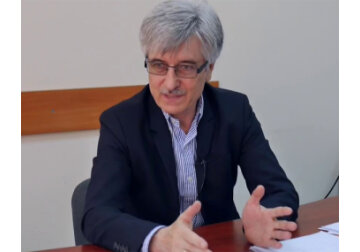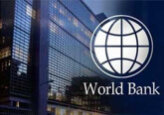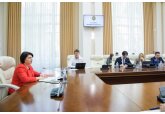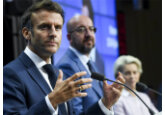
The Parliamentary Commission on Economy, Budget and Finance did not support the initiative of a vote of no confidence against the Ministry of Finance’s politicians.
During the meeting of the Commission the Minister of Finance Dumitru Budianschi stated that the accusations brought against the Ministry are groundless and are of political and speculative nature. The head of the Ministry of Finance stressed that the current crisis is 100% caused by external factors, and the accusations voiced in the letter are based on opinion, not facts. According to Budianschi, with the beginning of the war the financial system suffered - some payment instruments became unavailable; panic and fear led to additional load on the banking system; all the chains of export-import supplies, which are carried out from or through Ukraine, suffered; and because of the decline in imports from Ukraine and the region the state budget income decreased and there were temporary difficulties with goods supply, while the import cost of goods increased. At the same time, this situation, which provoked a rise in inflation, was observed not only in Moldova, but also in other countries of the region. As a result, the MPs voted against the vote of no confidence against the Ministry of Finance. Let us remind that the Bloc of Communists and Socialists parliamentary faction initiated the simple vote of no confidence, accusing the Ministry of Finance of incompetence and lack of professionalism in the management of public finances. The authors of the initiative argue that the Ministry of Finance has not taken real action to curb inflation and overcome the economic crisis. They also proposed a package of specific measures to improve the situation, including amendments to the state budget for 2022 to reflect the real inflationary situation; to conduct only urgent public procurement in 2022, to redistribute the released funds to cover the needs of socially vulnerable categories of population; to establish a moratorium on state inspections and a moratorium on payment of loans by individuals and legal entities in banks and NGOs; as well as to introduce tax incentives (establish a zero rate of VAT on reinvested profit; reduce excise rates by 50% and establish a zero rate of VAT on gasoline and diesel fuel; revise VAT on purchases of fertilizers and plant protection products, etc.). // 29.06.2022 – InfoMarket







